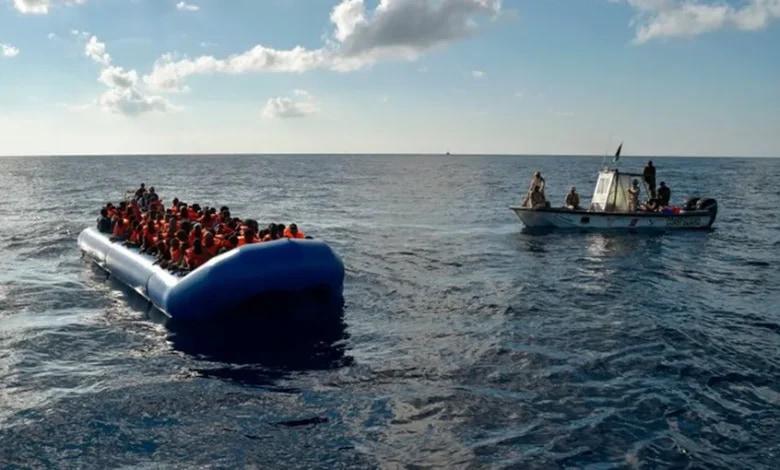
Italy’s highest court of appeal ruled that it was illegal to return migrants from the sea to Libya. The ruling was welcomed by charitable organizations and human rights groups, which criticized the government for cooperating with the Libyan authorities on migration.
The court upheld the conviction of the captain of the Italian tugboat (ASO 28), which rescued 101 migrants in 2018 from a rubber boat and returned them to Libya.
The court stated that the rescue took place in international waters, about 105 kilometers from Libya. The court added that pregnant women and children were among those onboard, according to the “InfoMigrants” website.
The captain, whose name was redacted during the ruling for privacy reasons, was sentenced to one year in prison for the crimes of neglect of minors or vulnerable persons, arbitrary disembarkation from a ship, and willful neglect of individuals.
However, it is unlikely that the captain will go to prison, because the Italian prison system does not usually require sentences of less than four years to be spent behind bars.
The ruling is final and upholds previous decisions ruled by two lower courts. The ruling was issued on February 1, yet the Italian media announced it on Saturday, February 17.
Italy and other European governments have begun to take an increasingly tough stance on immigration in recent years, amid growing support for right-wing parties that want to impose severe restrictions on people arriving by sea from North Africa.
The journey from Libya to Italy is one of the most used routes for migration by sea.
Mediterranea Saving Humans, a migrant rescue group, said in a post on the X platform, “Now we also have a judicial precedent that confirms what we have been calling for for years, which is that Libya is not a safe country.”
Amnesty International’s office in Italy praised the ruling, and criticized the government for cooperating with Libyan authorities on migration.
Under international humanitarian law, migrants cannot be forcibly returned to countries where they face serious mistreatment, and many cases of widespread mistreatment of migrants have been documented in Libya.
In 2018, the behavior of (ASO 28) attracted the attention of the United Nations High Commissioner for Refugees, which expressed concern about the potential “violation of international law.”





